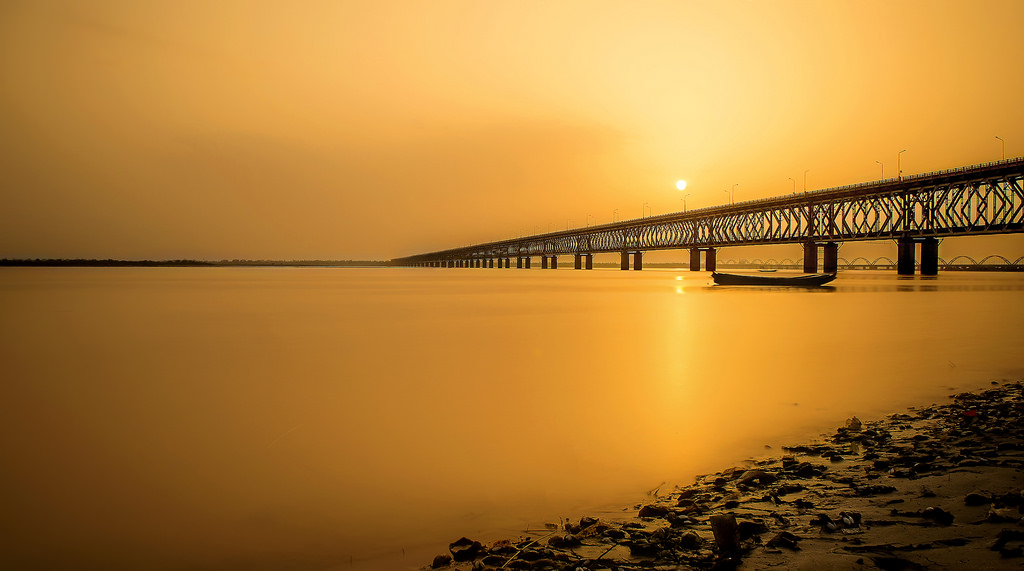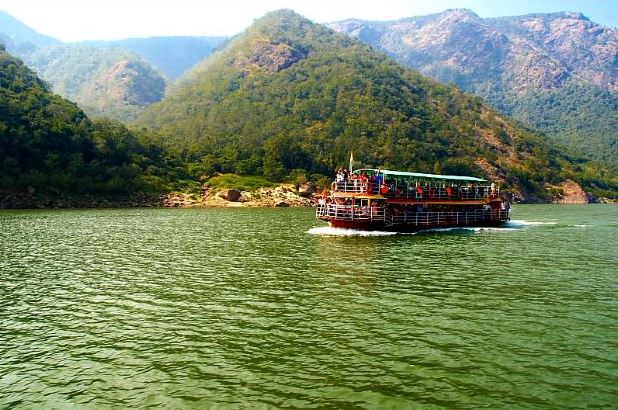Godavari River

The Godavari River, coursing through the heart of India, is more than just a waterway. It is a cultural heartbeat, pulsating with myths, traditions, and a profound connection to the communities it nurtures. In this comprehensive exploration, we unravel the multifaceted reasons why the Godavari River stands as a symbol of cultural richness and spiritual vitality.
Introduction
Rivers, often referred to as the lifelines of civilizations, hold within their waters the stories and traditions of the lands they traverse. The Godavari River, the second-longest river after the Ganges River in India, weaves a tapestry of cultural significance that has shaped the identity of the regions it graces. This article aims to uncover the layers of cultural importance that make the Godavari a revered entity in the hearts of millions.
Historical and Mythological Foundations
Vedic References: Godavari in Ancient Texts
The Godavari River finds mention in ancient Vedic texts, establishing its cultural roots in the early epochs of Indian civilization. The Rigveda celebrates the sacredness of the Godavari, acknowledging its role in fostering life and prosperity.
Godavari in Hindu Mythology: The Ganges of the South
Hindu mythology bestows divine significance upon the Godavari, often referred to as the Ganges of the South. Legends and puranas narrate tales of the river’s origin and its association with prominent deities, elevating its cultural importance to a sacred realm.

Religious Festivals and Pilgrimages
Kumbh Mela: Tryst of Spirituality and Culture
The Godavari hosts one of the largest religious gatherings in the world – the Godavari Pushkaram or Godavari Maha Pushkaram, which occurs once every 12 years. Pilgrims from across the country converge to take a dip in the sacred river, partaking in a spiritual and cultural spectacle that binds diverse communities.
Godavari Antya Pushkaram: A Culmination of Devotion
The Antya Pushkaram, occurring at the end of an individual’s 12th year, marks the culmination of the Godavari Pushkaram cycle. Devotees believe that taking a dip during this period cleanses them of sins and ensures spiritual upliftment, fostering a deep cultural connection with the river.
Architectural Splendors Along the Banks
Temples and Ghats: Architectural Testaments to Devotion
The Godavari River basin is adorned with temples and ghats, each telling a story of devotion and cultural evolution. The Trimbakeshwar Temple, the Kumbh Mela site, and the Kovvur Ghat are architectural splendors that bear witness to the interplay of culture and spirituality.
Rajahmundry: The Cultural Hub on Godavari’s Banks
Rajahmundry, a city nestled along the Godavari, serves as a cultural hub with its historical sites, ghats, and cultural events. The Godavari Pushkaralu, a festival celebrated once every 12 years, transforms Rajahmundry into a cultural melting pot, attracting pilgrims and tourists alike.
Cultural Practices and Traditions
Art, Music, and Dance: A Symphony of Cultural Expression
The Godavari region has been a cradle for traditional art forms, music, and dance. Folk performances, cultural festivals, and art exhibitions thrive along the riverbanks, showcasing the vibrancy and diversity of the cultural practices that have stood the test of time.
Culinary Heritage: Gastronomic Delights Along the Godavari
The Godavari delta is renowned for its culinary heritage, offering a diverse array of traditional dishes. The river’s waters have nourished the fertile soil, yielding a bounty of rice and spices that form the basis of the region’s distinctive gastronomy.
Economic Significance and Livelihoods
Agrarian Traditions: Symbiosis with the River
The fertile plains along the Godavari have sustained agrarian communities for centuries. Traditional farming practices, including the cultivation of rice and sugarcane, have shaped the cultural fabric of the region, forming a symbiotic relationship with the river’s bounty.
Trade and Commerce: Godavari as a Navigable Waterway
Historically, the Godavari served as a navigable waterway, facilitating trade and commerce. The riverbanks became hubs for economic activities, fostering cultural exchanges and shaping the identity of towns and cities along its course.
Environmental Conservation and Cultural Responsibility
Godavari’s Environmental Challenges: A Call to Cultural Action
In contemporary times, the Godavari River faces environmental challenges such as pollution and habitat degradation. Cultural practices are evolving to include eco-friendly measures, and conservation initiatives are gaining momentum, reflecting the cultural responsibility to protect the sacred river.
Conclusion: The Living Heritage of Godavari
In conclusion, the Godavari River is not merely a geographical entity but a living heritage that breathes through the cultural practices, traditions, and spiritual fervor of the communities it nourishes. Its significance goes beyond the physical flow of water, resonating in the hearts and souls of those who consider it a cultural lifeline.
Know More about Godavari River.
What are The Religious Places of Godavari River?
When Did The Godavari River Basin Become a Focus?
Where is The Godavari River Located?
Who Were The Key Historical Figures and Civilizations of The Godavari River?
How to Reach Godavari River?




